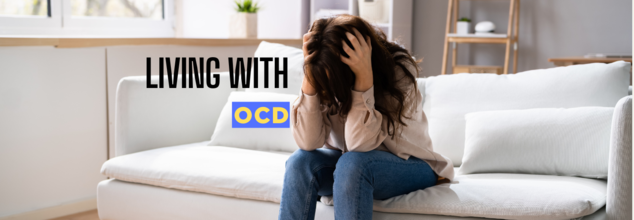
Image Credit: Health and me
'You Don't Obsess Over Cleanliness, Are You Sure You Have OCD?' - Honest Account Of Times When Friends Don't Agree With Your Diagnosis
When Ramya first heard the words “you have OCD” from my therapist, she expected relief to wash over her. Finally, a name for the constant, intrusive thoughts and rituals she had spent years trying to suppress. A label that would help her make sense of her behavior—why she repeated certain phrases under her breath, why she obsessed over whether she had hurt someone unintentionally, why her brain played the same unsettling thoughts on an endless loop.
But her relief was short-lived. The moment she shared her diagnosis with friends and family, their reactions were almost uniform: disbelief. “You don’t seem OCD,” one friend told her, half-laughing. “You’re not obsessed with washing your hands or anything.” Another chimed in, “But your room is always messy- are you sure?”
That was the moment she realized that, to many people, OCD only existed in one form- the hyper-clean, hyper-organized, germ-fearing perfectionist they had seen in movies and TV shows. And since she didn’t fit that mold, her diagnosis was up for debate.
Living with the "Invisible" OCD
What many don’t realize is that OCD isn’t always visible. It doesn’t always manifest in excessive handwashing or arranging items symmetrically. For me, it lived in my mind, quietly tormenting me with relentless doubt and irrational fears. I would spend hours questioning whether I had locked the door, even after checking multiple times. I avoided driving because I feared I might hit someone without realizing it.
Unlike compulsions related to cleanliness, my OCD rituals weren’t obvious to outsiders. I performed them silently—counting, repeating words in my head, seeking constant reassurance. This made it even harder for people to accept my diagnosis.
The Frustration of Being Doubted
One of the most painful parts of dealing with OCD wasn’t just the disorder itself—it was the invalidation from people I trusted. “Maybe you’re just overthinking,” a friend once said when I confided in them. “Everyone has weird thoughts sometimes.” Another person, who regularly posted about mental health awareness, casually dismissed my struggles, “You’re just anxious. OCD is something else.”
Their words, though likely not meant to hurt, left a lasting impact. I started doubting my own reality. Maybe they were right. Maybe I was making it up. Maybe I didn’t deserve therapy or medication. The doubt- already a core part of OCD- became amplified, creating a cycle of self-questioning that was nearly impossible to escape.
This kind of invalidation can be incredibly harmful. It plants seeds of self-doubt—something that people with OCD are already painfully familiar with. When my diagnosis was questioned, I found myself wondering:
What if my therapist was wrong?
What if I’m just making excuses for my personality flaws?
What if I’m actually just overreacting?
The Truth About OCD
Despite common stereotypes, OCD doesn’t always revolve around cleanliness. The disorder is defined by two core components: obsessions (intrusive, distressing thoughts) and compulsions (rituals or behaviors done to neutralize those thoughts). These compulsions can be physical, like checking the stove repeatedly, or mental like reciting a silent prayer to ward off imagined disasters.
There are many subtypes of OCD that have nothing to do with order or hygiene, including:
Harm OCD – The fear of unintentionally harming others, leading to excessive avoidance behaviors.
Relationship OCD – Intrusive doubts about one’s relationship, love, or attraction to a partner.
Scrupulosity OCD – An obsession with morality, religious purity, or being a “good person.”
Counting OCD – The compulsion to count things in a specific way to prevent a feared outcome.
For me, OCD looked like an exhausting mental battle with my own thoughts, a war that no one else could see.
Why the Disbelief Hurts
When friends and family dismiss an OCD diagnosis because it doesn’t match their limited perception, they unknowingly contribute to the stigma surrounding mental illness. Their doubt doesn’t just invalidate experiences, it can prevent people from seeking the help they need.
In my case, it made me hesitate to open up. I stopped sharing my struggles because I didn’t want to hear another, “Are you sure?” I began questioning whether I even deserved treatment. It took months of therapy and reading personal stories from others with OCD to understand that my experience was valid, even if those around me couldn’t see it.
How to Support Someone with OCD
If someone you know shares their OCD diagnosis with you, the best thing you can do is believe them. Even if their symptoms don’t match your expectations, trust that they know their own mind better than you do. Instead of questioning their experience, ask how you can support them. Sometimes, all it takes is saying, “I believe you.”
OCD is a difficult disorder to navigate on its own—but facing disbelief from those closest to you makes it even harder. Mental health awareness isn’t just about sharing Instagram posts or advocating for therapy. It’s about truly listening and understanding that OCD, like any other mental illness, doesn’t look the same for everyone.
I may not obsess over cleanliness, but my OCD is real. And just because you can’t see it, doesn’t mean it doesn’t exist.
© 2024 Bennett, Coleman & Company Limited

